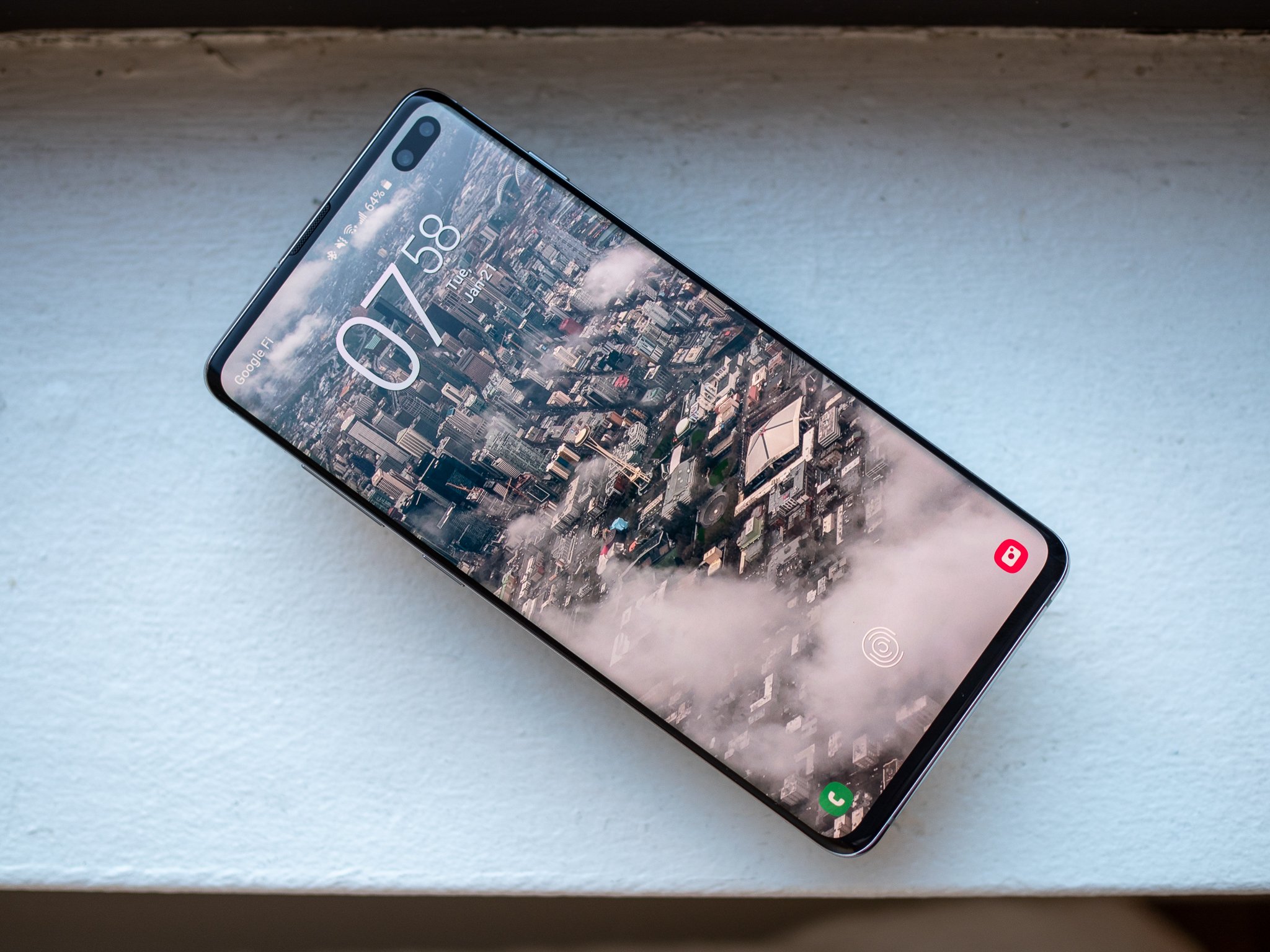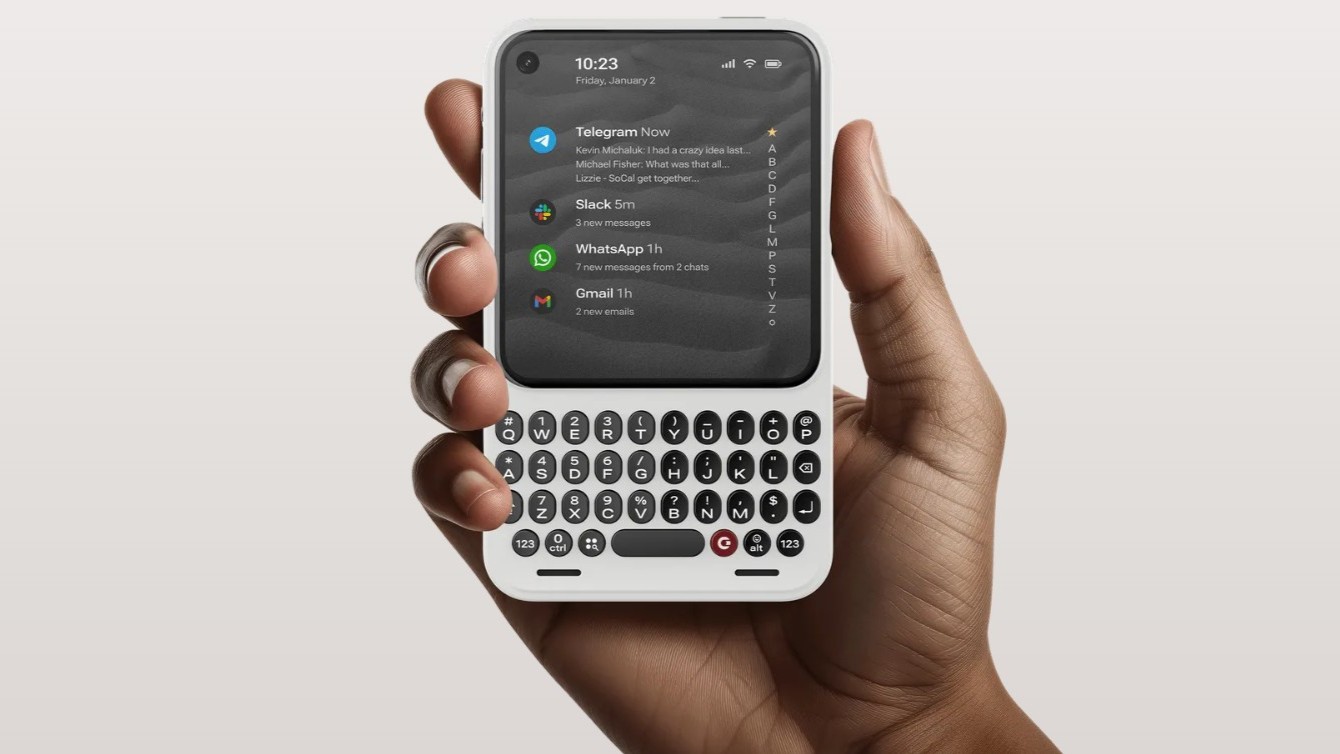With the way Samsung's phones continuously stay in the conversation of the high-end competition, it's easy to forget just how long they've been on the market. It definitely snuck up on me that the Galaxy S10+ was several months old at the end of 2019, as it kind of gets combined with the Galaxy Note 10 in my mind and still feels "fresh."
But now we're quickly approaching a year since the Galaxy S10+ was released. And that's a perfect time to reflect on how the phone's held up, while also gaining some perspective on that'll come in handy when we see the Galaxy S20.
Samsung Galaxy S10+ What I still like
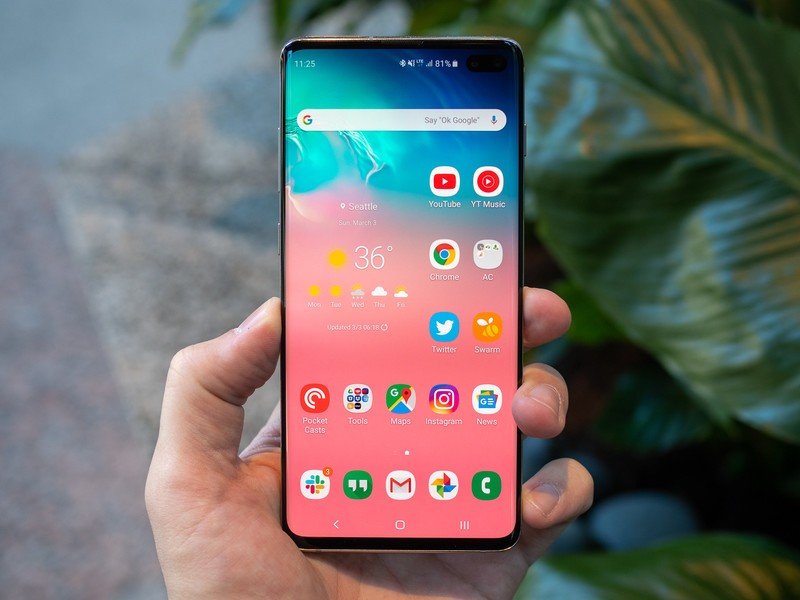
Samsung's biggest strength is its hardware, and that hasn't faded. It may look and feel a little generic at this point, considering we've been using basically the same core design here since the Galaxy S7, but standing on its own, you can't argue with the hardware quality and beauty here. The shiny polished metal and curved glass don't feel dated in any way, nor do any of the core hardware features.
I would still happily take the S10+ display on any phone — it's that good.
I would still happily take this Galaxy S10+ display on any phone. Even though it lacks the 90Hz refresh rate on offer from others, the overall quality of the screen in colors, clarity, viewing angles, and outdoor visibility are what matters. In the same vein, its wired charging doesn't reach the ludicrous levels of some other phones, but it's plenty fast with USB-C PD, and fast wireless charging is still great to have. And yes, it's noticeable that the Galaxy S10+'s speakers aren't quite top-notch any longer — but they absolutely get the job done.
I think it's important to note that there's nothing here that the S10+ is outright missing, and there isn't any hardware feature I wish I had every day I use the phone. The only hardware shortcomings, even taken through the lens of early 2020 expectations, are shades of grey and personal preference. Every bit of this hardware is still entirely capable and powerful.
There isn't any hardware feature I wish I had every day I use this phone.
And one of the areas where there's no caveat to apply is in battery life, which is still very strong for me even with months of hard use on the phone. The S10+ still exhibits that trademark Samsung battery drain that's extremely consistent throughout the day, with nothing short of high-end gaming taking any considerable chunk out of the battery. Even long stretches of running the hotspot, using Bluetooth all day, and navigating in Google Maps don't kill it — it's still a strong point of this phone.
Samsung managed to implement Android 10's features and not cause any damage in the process.
But hardware isn't the only positive story here. I received the update to Android 10 — aka Samsung's One UI 2 — in late December, which really helped the S10+ feel fresh again after a couple of months using the Pixel 4 XL. After the inevitable couple days of quirks from upgrading in place with months of data and dozens of apps already installed, everything settled in and now runs perfectly.
Get the latest news from Android Central, your trusted companion in the world of Android
Samsung didn't change much visually, which is something that'll certainly come with the Galaxy S20's release instead, but implemented Android 10's new features well and didn't cause any damage in the process. I obviously can't speak for everyone who's updated, but my performance seems unaffected, as does battery life. That absolutely has not been a given for me with Samsung phones in the past.
Samsung Galaxy S10+ What hasn't aged well
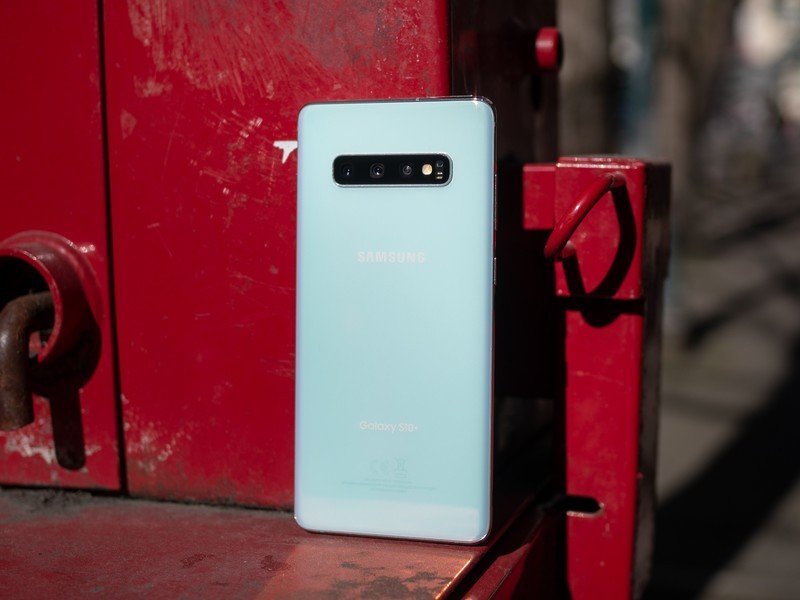
With a year of use and a lot of perspective, there are three notable parts of the Galaxy S10+ that haven't held up well to time. The first is the camera, which shouldn't come as too big of a surprise.
The camera wasn't a world-beater when it was released, and another year hasn't helped the situation.
This camera system wasn't a world-beater when it was released, and there are even fewer ways to justify its shortcomings when the Pixel 4 is out there taking incredible photos that beat the S10+ handily. The average person is still going to be very happy with S10+ photos, because they're incredibly consistent and have a saturated "pop" that appeals. But us photo nerds can easily pick out the lack of sharpness and textures, and nitpick on the dynamic range. Even the untrained eye can see the S10+'s low-light photos are well behind the curve.
Second is the fingerprint sensor, which I realize at this point I was maybe a bit too easy on a year ago. The novelty of it being an in-display fingerprint sensor has fully worn off at this point, and after using other phones — with both kinds of fingerprint sensors — I can't excuse just how terribly slow and inconsistent the S10+'s is. No matter how much muscle memory I have for where to place my thumbs, and how many times I retrain the fingerprint model, nothing helps — this is just a badly implemented fingerprint sensor, and it's one of the few areas where this phone feels behind the times.
Yes, it's Android 10 now, but you still have to live with the frustrations of Samsung software.
The last part of the Galaxy S10+ that feels like a shortcoming a year on is the software experience. Yes, I just got done praising Samsung's One UI 2 update for implementing Android 10's features and not causing any problems, but that in itself is kind of a problem: this is still Samsung's software, frustrations and all, and it doesn't feel like it made any sort of an attempt to push the experience forward.
Again, I fully expect the Galaxy S20 to bring actual software user experience improvements and features, but it would've been nice to see Samsung tighten the screws a bit and address some of the annoyances in the S10+. Things like the very old-feeling launcher, the clunky way the notification shade handles colored notifications, so many of these duplicate apps and services, and perhaps do something about how clunky Bixby still feels.
Samsung Galaxy S10+ One year on
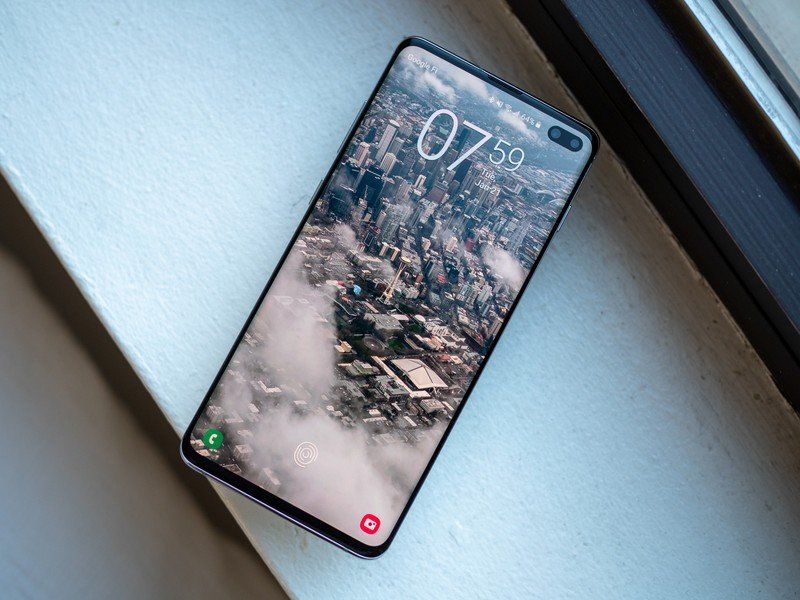
The Galaxy S10+ actually fares well in early 2020.
Looking at the Galaxy S10+ with critical eyes and plenty of perspective from using a whole host of other phones in 2019, it actually fares very well in early 2020. Much of the hardware experience and features feel modern and useful, with many aspects like the hardware styling and battery life holding up strong to everything released in the rest of the year.
Naturally, there are some areas where the phone doesn't feel top-of-its-class a year after release, namely in the camera quality and fingerprint sensor. But much like my quibbles with some aspects of the hardware, these things aren't problems as much as they're just places where you're starting to notice the Galaxy S10+'s age. Taken as a whole device, the Galaxy S10+ is still a great phone, with compromises in certain places like any other — and a year on, these compromises haven't changed dramatically.
You can get a brand new unlocked Galaxy S10+ for well under $900 today, which really feels like good money considering how well it keeps up with the modern competition.

Samsung Galaxy S10+
A year on, the Galaxy S10+ still feels modern, powerful, and capable. The hardware is excellent even by today's standards, and there are only small pieces of the experience that feel behind the times.

Andrew was an Executive Editor, U.S. at Android Central between 2012 and 2020.
